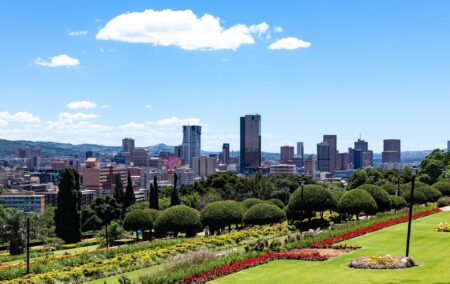As the coalition government in Johannesburg collapses yet again, the residents of Gauteng must not give up on the opposition. Yes, the Ekurhuleni government will also maybe collapse due to the deal being negotiated between the EFF and ANC, but Tshwane has now been under opposition government for six years and there are reasons to believe that this government will continue. This is due to the ideological composition of the Tshwane government, despite some in-fighting between coalition partners.
The Tshwane metro is governed by a coalition of the DA, , ACDP, FF+, ActionSA, and COPE. The current government took power in 2021 but the DA has led a coalition in Tshwane since 2016. Unlike the first coalition government, the DA no longer needs the EFF, thanks largely to ActionSA taking away votes from the ANC. The parties in the current coalition can form the basis of a future opposition alliance for taking on the ANC at national level, if the IFP is added to the list.
Petty squabbles
Among the petty squabbles between the DA and ActionSA, we must not lose sight of the bigger goal. Both parties are essential to a future post-ANC government and need each other. The DA has not proven its ability to take votes away from the ANC, unlike ActionSA. At the same time, ActionSA cannot hope to be leader of the opposition at this stage and for the foreseeable future. In fact, if the project of taking down the ANC is to succeed, both the IFP and ActionSA are essential because you’d be hard-pressed to find any other parties that oppose Expropriation Without Compensation, are broadly aligned to liberal ideas, and can take away votes from the ANC.
The only two parties that fit the description right now are the IFP and ActionSA. The IFP can only take away ANC votes in KwaZulu-Natal, while ActionSA can potentially challenge the ANC in the rest of the country, as they have done in Gauteng. While disagreements will exist on sensitive issues like immigration and race-based redress, some cooperation from all sides is required, since there are precious few options for addressing the existential challenges that South Africa faces.
So, look to Tshwane, look past the troubling developments such as the adverse audit opinion from the Auditor-General, and the lack of tangible results being felt by residents as of now. That metro is still suffering from years of ANC mismanagement. As in Cape Town, more time is needed for better governance to start yielding benefits, and there will be missteps along the way. The important thing is to keep that coalition from fraying.
Opposition coalition
Even if an opposition coalition fails to take power in 2024 nationally, Tshwane will still stand as a beacon to the rest of Gauteng and the country for what can be achieved. The coalition can still potentially use the metro as a springboard for taking control of the provincial government, as the DA coalition once did in Cape Town and the Western Cape, winning power in the city in 2006 and then the province in 2009. The second best option to governing Johannesburg – if you want to have an impact on Gauteng – is governing Tshwane. If there is better governance in Tshwane, perhaps the six parties mentioned earlier can eventually take charge in Johannesburg in 2026.
All of this will require much better communication from the government of Tshwane about the challenges it is facing. The residents of the city are rightly aggrieved by a seeming lack of progress. Tshwane Mayor Randall Williams needs to take communication lessons from Mayor Chris Pappas of Umngeni. He should always take the lead in explaining to residents what the challenges are and what the city government is doing to address them, before the ANC and EFF can frame the narrative.
The ANC/EFF understand what is at stake in Gauteng, it is the beating heart of this country and even if the aspirations to take control of national government next year don’t materialise, taking over Gauteng in 2024 or 2029 would still be a good consolation prize and would be a real stepping stone towards taking over the country eventually. As much as Cape Town is important to the economy of the country, it does not compare to the influence of Johannesburg and its economic impact. As Johannesburg goes, so does the country; Johannesburg and Gauteng are to South Africa what Los Angeles and California are to the USA.
Let us hope the DA, FF+, ActionSA, the IFP, and the ACDP (COPE might not be around much longer, realistically speaking) realise the opportunity that is in their hands. They should start creating more permanent institutions of co-operation between themselves outside of a specific coalition agreement. They need to establish a permanent alliance with permanent dispute-resolution and decision-making mechanisms. None of them can run the country on their own, but through hard work and an understanding of what their voters expect from them, they can work together to govern South Africa effectively and thus save this country from the destruction of a burgeoning ANC/EFF alliance.
The views of the writer are not necessarily the views of the Daily Friend or the IRR.
If you like what you have just read, support the Daily Friend.
Image by Clayton Majona from Pixabay

